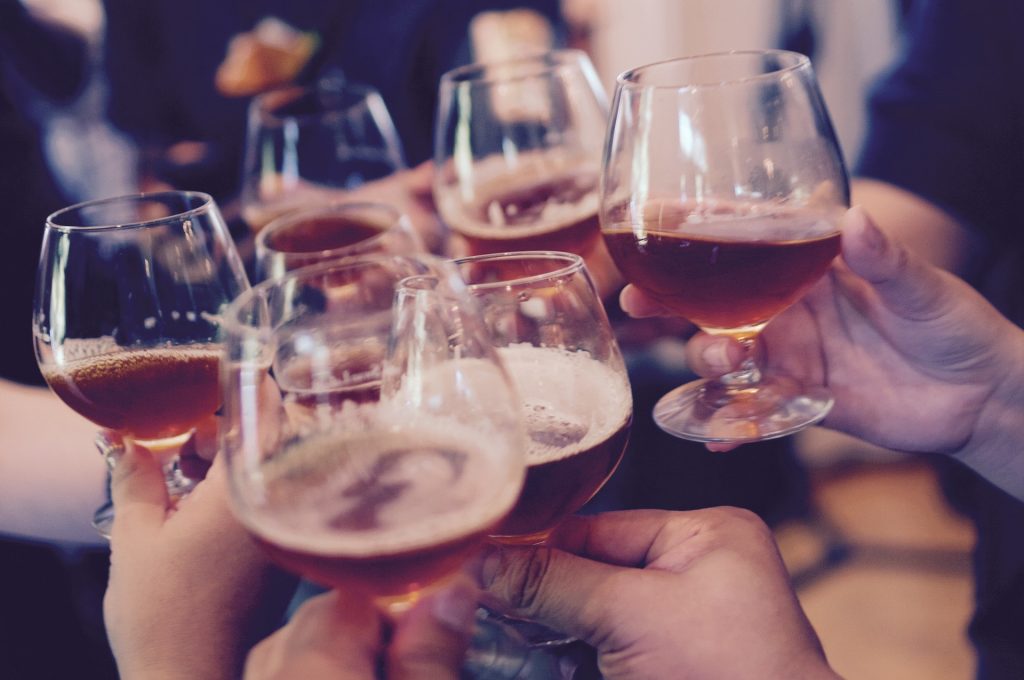What Is the Definition of Binge Drinking?
When people think about alcohol abuse, they often picture a person drinking heavily and steadily, every day of the week. But in reality, there are several types of drinking that can cause problems in a person’s life and affect their health. One of these is binge drinking.
Binging is very common—more than a quarter of Americans report binge drinking at least once per month. Binge drinking may even account for up to 50 percent of the drinks served in the U.S. But that doesn’t mean it’s safe. According to the CDC (Centers for Disease Control and Prevention), more than half the alcohol-related deaths in the U.S. each year are due to binge drinking.
But what defines binge drinking, and how can you get it under control? Below, we’ll answer some common questions about binge drinking, keeping your alcohol consumption within healthy limits, and how you can quit binge drinking if it’s become a problem for you.
What Is Binge Drinking?
What is considered binge drinking? Binging means consuming a large amount of alcohol in a short period of time. Often this happens during social events, in bars, or among large gatherings of people.
How Many Drinks Constitutes Binge Drinking?
According to the National Institute on Alcohol Abuse and Alcoholism (NIAAA), if you drink enough to bring your blood alcohol concentration (BAC) to 0.08 or above, it’s considered binge drinking. For men, this often means five drinks or more within two hours. For women, the amount is generally four or more. This is also the threshold for drunk driving throughout much of the United States.
Read more: Drinking Levels Defined

What Are the Risks of Binge Drinking?
Short-term risks of binge drinking include:
- Motor vehicle accidents from driving under the influence
- Accidental injury from slips, trips, and falls
- Increased likelihood of physical altercations or arguments
- Greater risk of sexual assault
- Higher chances of sexually transmitted infections or unintended pregnancy from unprotected sex
- Alcohol poisoning, leading to hospitalization or even death
Long-term risks of consistent binge drinking include:
- Greater likelihood of developing alcohol use disorder (AUD)
- Increased risk for several types of cancer
- Heart, liver, and kidney disease, as well as chronic illnesses like diabetes
- Problems with memory and learning
Then, there are the other consequences—like the impact of hangovers on your job performance, or the toll that excessive drinking takes on your relationships.
Is Binge Drinking Alcoholism?
Is a binge drinker the same as an alcoholic? Not necessarily. Many people who are alcoholics binge drink, and binge drinking can lead to alcoholism. The key difference is how often you binge, whether it becomes a pattern, and whether it’s causing harm to you or those around you.
SAMHSA (Substance Abuse and Mental Health Services Administration) defines heavy alcohol use as binging five or more times per month. But even if you binge drink rarely, if you have trouble controlling your drinking once you start that’s still an issue. Problem drinking exists on a spectrum.
If you’re concerned you may have an alcohol use disorder, take our free alcohol use assessment.
How To Binge Drink Safely
In truth, there is no safe way to binge drink. But if you intend to drink a lot in one night, there are things you can do to lower your risk.
Be sure to have dependable friends looking out for you. Make a plan for how you will get home, or where you’ll stay for the night. Consider giving your car keys to someone you trust before you begin drinking. Be sure you’re in a safe place, around people who won’t put you under excessive peer pressure. And otherwise, pace yourself, eat something beforehand, hydrate, drink beer instead of liquor to slow yourself down, and make sure you don’t binge more than once in a blue moon!
Read More: Tips For Keeping Party Drinking Under Control
Benefits of Stopping Binge Drinking
Quitting binge drinking can have a massive number of benefits for your health and well being. Here are just a few:
- Fewer hangovers
- Improved safety on a night out
- Greater mental clarity—including improved decision making, focus, and memory
- Decreased depression and anxiety
- Better digestion and nutrition
- Lower risk for chronic illnesses
- Increased fertility if you’re trying for a baby
- Savings from buying less alcohol
- Easier weight loss
Even taking a month off from drinking, such as Dry January, can lower your blood pressure, improve your skin, help you lose weight, improve your sleep, and allow your liver to heal.
How To Stop Binge Drinking
Just because quitting has many benefits doesn’t mean it’s easy. You may wake up with a splitting hangover headache and tell yourself “I need to stop binge drinking”—but that doesn’t mean you’ll stick with that resolution tomorrow. On top of that, the process of quitting binge drinking can be somewhat different than giving up drinking in general.
To make a change in your binge drinking habits, we recommend starting with:
- Deciding on a drink limit you’d like to achieve
- Finding some friends who can act as allies when you go out
- Avoiding situations in which you are likely to binge drink
- Taking up some new hobbies and activities to fill the gap
- Trying medications such as naltrexone to reduce the reward you get when you drink alcohol
Read more about How To Stop Binge Drinking
Finding Support to Control Your Drinking
Ria Health’s program offers support for people anywhere along the alcohol use spectrum, from occasional binge drinkers to those who drink heavily every day. If you’d like to make a change in your relationship with alcohol, we’ll customize a plan to your unique needs and support you every step of the way—all through a convenient smartphone app.
Will insurance cover treatment? Verify Coverage
Have Questions? Call (800) 504-5360


